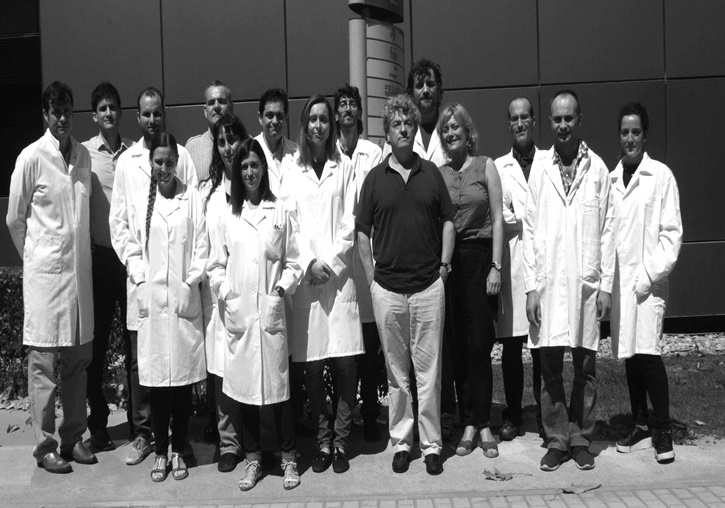Research on pulmonary haemorrhage with kidney failure used to avoid respiratory distress in COVID-19 patients
- Scientific Culture and Innovation Unit
- May 18th, 2020

A research team from the University of Valencia, led by Professor Juan Saus from the Department of Biochemistry and Molecular Biology, is developing a project to provide the healthcare system with a diagnostic test that anticipates the entry into advanced stages of patients with COVID-19 and a scalable oral treatment for the disease. The proposal has the support of the Valencian Government, within the call “Capacities of the Valencian System of Innovation in the fight against COVID-19”, which finances actions that provide innovative solutions to the new coronavirus.
Goodpasture syndrome has been the subject of study by the research group led by Juan Saus at the University of Valencia since 1988. It is a pulmonary haemorrhage with kidney failure that currently manifests itself very sporadically and that from new discoveries of the Saus’ team have given way to a therapeutic proposal for COVID-19.
“GPPP (Goodpasture antigen binding protein), when it is overexpressed and accumulates outside the cell, causes a destructuring of the microenvironment and transforms thin membranous structures into thick fibrous walls that make it difficult for oxygenation and blood purification in the lung and kidney. This established the basis for the development of EMTEST, a prototype to measure GPBP in blood and T12, a compound specifically designed to inhibit it”, explains Juan Saus.
The research team observed that GPBP accumulates in the lungs of patients with a condition of severe respiratory distress called adult respiratory distress syndrome (ARDS), caused by infections or sepsis. “There is more and more evidence that a sepsis with a predominance of lung involvement is the cause of fatality in COVID-19”, explains Saus. “With sepsis, antibacterial or antiviral treatments are not effective enough in stopping the process. Once ARDS has been triggered in COVID-19 patients, a treatment that eliminates the coronavirus is not expected to significantly modify the fatal course of the disease”, concludes the expert.
For this reason, the project wants to use EMTEST to measure GPBP in the blood of COVID-19 patients and anticipate the appearance of ARDS. Then, with controlled GPBP levels, administer T12 to COVID-19 patients at risk of respiratory distress and avoid the onset of this disease. “With this proposal we want to develop a diagnosis of ARDS imminence and a specific treatment to improve the survival of people with COVID-19 and avoid collapses in the Health System”, says Juan Saus.
The project is led by the University of Valencia and the INCLIVA Health Research Institute, accredited to carry out diagnostic and therapeutic clinical trials, and MedalChemy, an SME accredited to produce T12 for human use, also participate. The Scientific University Hospital of Valencia, the University Hospital Complex of Santiago de Compostela, the Arnau of Vilanova Hospital of Valencia and the Patológika laboratory of the Quirón Salud Hospital in Valencia collaborate in this scientific work.
















